No Man’s Land by Jennifer Compton
No Man’s Land written by Australian playwright Jennifer Compton was a fitting La Boite programming choice for International Women’s Year (1975). In 1974 Compton's play won equal first place along with John Romeril’s The Floating World at the Newcastle Playwriting Competition.
The La Boite production attracted a good deal of media interest and was strongly reviewed as a significant and well-crafted play. Here is The Australian theatre critic Ivor Wren’s review:
After a disappointing Sydney season, Jennifer Compton's No Man's Land - a shared first place prizewinner in the 1974 Newcastle playwrighting competition - opened last week at Brisbane's La Boite. This new play by the 25year-old New Zealander was staged by the theatre's director, Jennifer Blocksidge. On several levels it is a remarkable piece of work. The plot is ingenious and has all the earmarks of the well-formed play. The writing is sincere and concise, lacking in the pretentiousness which befuddles much recent scripting.
Written for the proscenium, or perhaps the thrust stage, it posed several problems when played in the round. These were overcome by David Bell's well-designed set. The plot concerns two married couples, spaced 75 years apart. The set combines the 1910 ambience with the 1975 drawing room restored to its original beauty. The characters from both eras appear on stage by turns and frequently overlap.
The cast of six is admirably chosen. Jennifer Flower plays Jane of 1910 and Janie, the liberated '75 version. In both roles she is delightful, switching from demure fin-de-siecle to modernity with grace and considerable stage presence. Rose, the maid-servant, is Christine Hoepper. As the role develops so does Miss Hoepper, although I quarrel with one or two seemingly anachronistic expressions. Cilla, the modern married, is Marguerite Steffensen. Hard, worldly and businesslike, she is never quite sure of her role as a fighter for feminine freedom. As she says: "I don't think I could do without men. I'm a terrible traitor." Like most vacillating people, she makes the waves which almost engulf her.
Bronwen Doherty plays Mim, the plain girl by-passed by men but so anxious to become a mother that she seduces a young man and then refuses his reluctant if gallant offer of marriage. Miss Doherty is superb. She knows exactly what Mim is about and even during her brief skirmish with Cilia's husband retains her coal. It is a gem of a role.
The two men are Murray Cullen, playing both modern Sam, married to Cilla, and 1900s Samuel, Jane's husband. It is one of Mr Cullen’s best characterisations to date. Mark Doherty is Lam, the with-it sound-recording lad trying to get something going with Cilla, and Tom Rose's friend of the earlier times. Both Mr Cullen and Mr Doherty bring off their transitions with polished ease.
If she continues to write in this vein I predict we shall hear a good deal more of Miss Compton.
Writer: Christine Comans
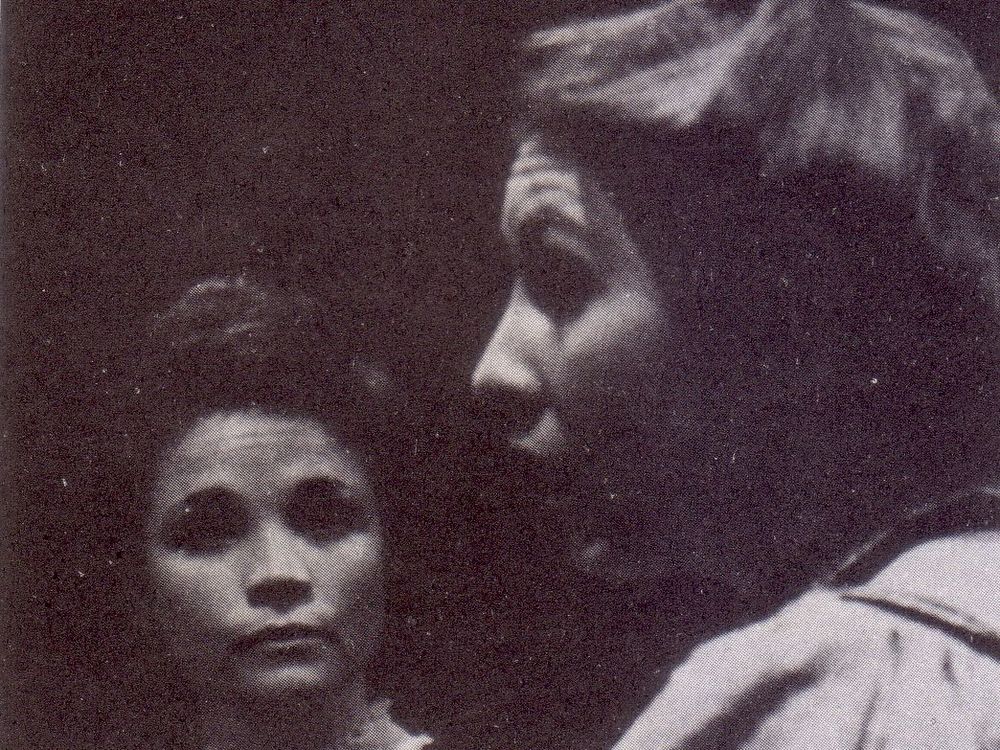
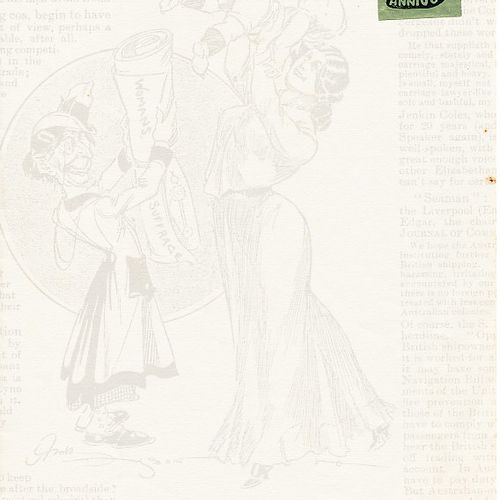
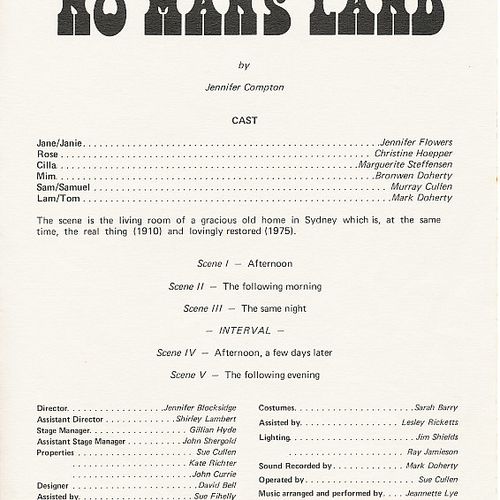
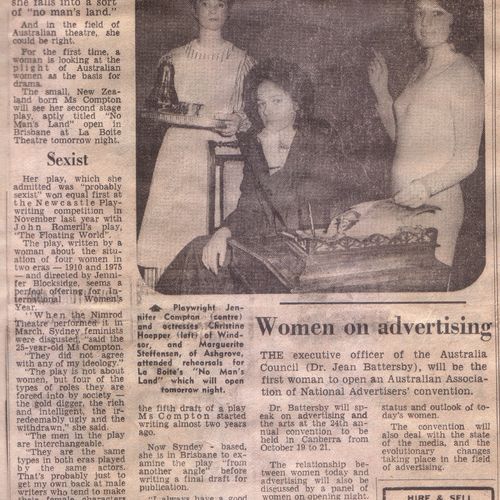
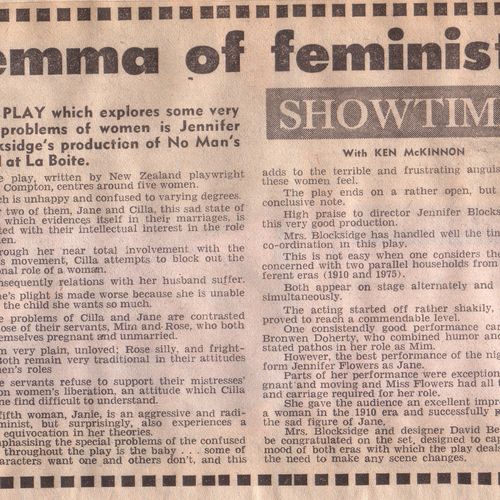
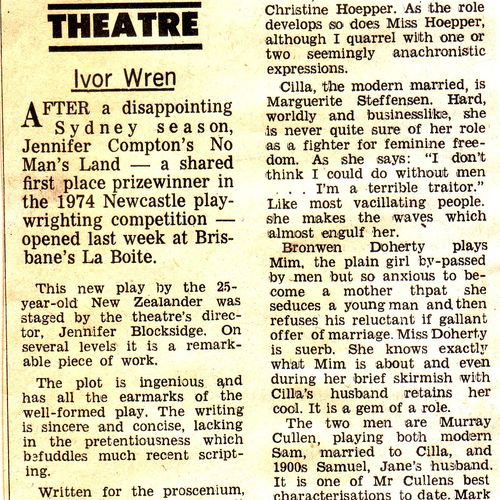
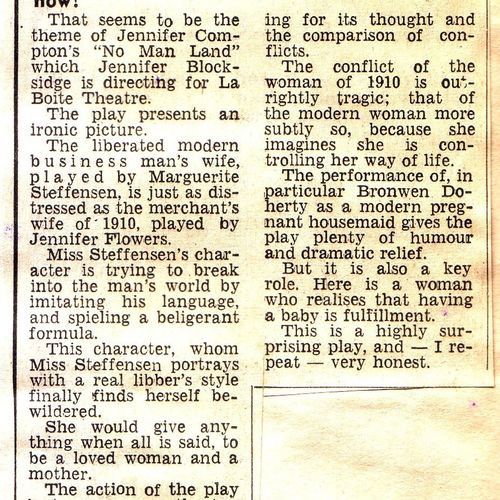
Tell us your story